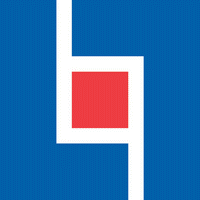The Swedish Supreme Court has requested a preliminary ruling from the CJEU in respect of an infringement case involving a CTM in Sweden.
The case involves the Swedish insurance company Länsförsäkringar AB (“LF”) who claimed that the Estonian construction company Matek A/S (“Matek”) infringed LF’s CTM through its use of a similar trademark . The CTM was registered in 2008 and the claim related to Matek’s use of a similar trademark between 2008 and 2011. The infringement case was brought before the District Court of Stockholm on January 18, 2012, i.e. within the five year grace period following LF’s registration of its CTM. There are no specific national procedural rules in the Swedish national law stipulating whether or not non-use of a registered trademark has retroactive effect within the grace period.
In its judgment, the District Court of Stockholm compared the services for which Matek had used its trademark with those of LF’s CTM registration. LF’s CTM included, in addition to insurance and real estate services, building construction and repair work. The District Court found that the registered services overlapped with those of Matek’s use, creating what the District Court called a ‘formal identity’ between the services of the two companies. Taking into account the similarities of the signs, the District Court therefore found that Matek’s use of its trademark was infringing LF’s registered CTM.


Matek appealed to the Svea Court of Appeal who overturned the judgment of the District Court. In its judgment, the Court of Appeal stated that only the services for which LF actually used the CTM for were relevant for the assessment of confusion. As such, the Court of Appeal only considered LF’s insurance and real estate services in its assessment as LF had not proven any intentions of expanding their business into building construction services. The Court of Appeal found LF’s services only partly similar to Matek’s services consisting of construction and sales of prefabricated wooden houses. In its global assessment, the Court of Appeal found that there was no risk of actual confusion. The Court of Appeal further ruled out any risk that Matek’s use would take unfair advantage of, or was detrimental to, the distinctive character or the repute of LF’s reputed Community trade mark. Therefore, it was concluded that Matek had not infringed LF’s CTM.
When the case reached the Swedish Supreme Court, the Court referred to the 10th recital of the Community trademark regulation (“CTMR”), where it is stated that it is not justifiable to defend CTM’s unless they are used. The Court continued by stating that Article 15 CTMR stipulates a five-year term within which a company must put their CTM into genuine use or potentially face revocation actions brought against it. The Court continued by stating that the present case relates to a time-period that falls within the five-year period following the registration date of LF’s CTM and that there is no clear practice in relation to such situations. The Court therefore asks the CJEU for a preliminary ruling in relation to the following questions:
- Is it relevant for the exclusive right of the proprietor that, for a time-period that falls within five years following registration, the CTM has not been put to genuine use in the Community in connection with goods or services in respect of which it is registered?
- If the answer to the question 1 is yes, under which conditions and in what way does this affect the exclusive right?
If the answer to the first question is affirmative, this could have a strong impact on trademark holders in the EU as the exclusive right given by the registration could be limited. We therefore follow this matter closely. The case has been given number C-654/15 by the CJEU.
_____________________________
To make sure you do not miss out on regular updates from the Kluwer Trademark Blog, please subscribe here.
Kluwer IP Law
The 2022 Future Ready Lawyer survey showed that 79% of lawyers think that the importance of legal technology will increase for next year. With Kluwer IP Law you can navigate the increasingly global practice of IP law with specialized, local and cross-border information and tools from every preferred location. Are you, as an IP professional, ready for the future?
Learn how Kluwer IP Law can support you.



